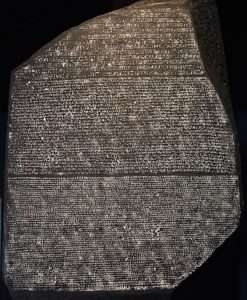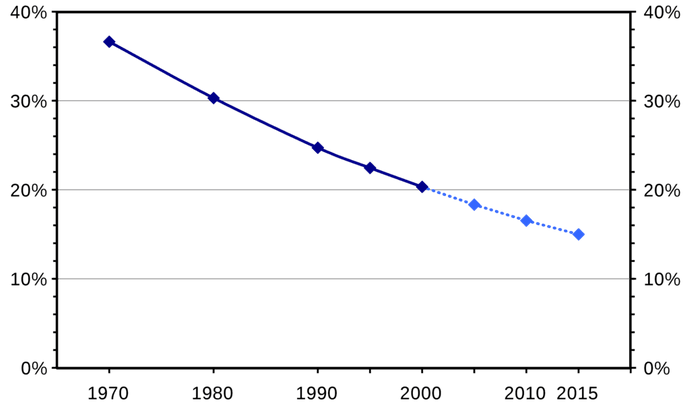How do you gain knowledge? And how do we avoid losing it?
What do you think of if I ask you about the Middle Ages? I imagine most people as farmers. Images of kings, crusades, The Plague and utter poverty come to mind. The Dark Ages come to mind too. The most powerful of times for the Catholic Church.
The Dark Ages started at the end of the 5th century and lasted for about 300 years, they’re most known for forcing scientists to comply with religious dogma. Labeling anyone that didn’t comply with “the scripture teachings” as heretics; throwing them in jail or burning them at the pyre. In the worst of cases, both.
Imagine if visionaries such as Giordano Bruno were listened to, instead of burned at the pyre? We’ve been ignoring bright minds throughout history, but I’m using the medieval era as an example.
“Advances in technology are not guaranteed, we advance because many people work hard for it, the natural state of civilization is to decline”
Elon Musk
The gathering and usage of knowledge defines individuals in modern society. We’re capable of passing on complex knowledge from one generation to the next, this has allowed human civilization to advance at an increasingly faster rate.
We’ve built a massive infrastructure to support our pursuits of knowledge. From schools to universities and all kinds of institutions, somewhere along the road, we learned that knowledge was the key to our future. We’ve coined the term “information/knowledge” workers to define people whose job is cognitively demanding and highly knowledge-based
It took hundreds of years to advanced past the middle ages. Less than two hundred to advanced from the industrial age to the atomic one, and just a few decades to evolve into the information age. We might be at the brink of either the space-exploration age, genetic-modification era, or the dangerous Singularity.
Humanity has managed to gather and use knowledge at an increasingly faster rate. If we don’t make sure to pass along that knowledge from one generation to the next, it will eventually be lost and will need to be re-gained or perhaps lost forever.
[caption id=“attachment_3860” align=“alignleft” width=“247”]

Think of the Egyptian hieroglyphs. Once a living and thriving language, inscribed in every important Egyptian tomb, learned by priests and sages and used by one of the most advanced civilizations of its time, was lost when the Egyptian gods and temples were banned in the 4th century by the Roman Emperor Theodosius I. In just two generations no one could read or write hieroglyphs anymore.
A language used for millennia almost lost forever. Rediscovered more than a thousand years later, thanks to lady luck herself.
In the 18th century, a big chunk of society was illiterate. Nowadays everyone is expected to read, to be able to do math, know biology, chemistry, and the natural sciences. Such knowledge was only available to the best scholars of the past, people with enough resources to devote their lives to the pursuit of knowledge.
However, what we’re all truly interested in is ourselves, our own journey of discovery. How to become wiser and to understand the world?
Even if it seems useless, humans are naturally drawn to learn and to improve.
How do we learn?
We fear the idea of having to learn something completely new. But our brains are marvelous machines capable of absorbing any type of input and turning it into useful output, which means we can learn almost anything!
However, if such input (the information) is not related to anything else we currently know, our brain can’t connect the dots and hence can’t use that new information.
Imagine you start reading a technical paper about the inner workings of a quantum computer, without any prior knowledge of physics, computing, and algorithms you could hardly understand what is going on.
Now imagine you’re reading the news, even if you’re not up to date with the world affairs, you will be able to absorb and understand the vast majority of any news article; this is due to two main reasons: the first one being that all news articles are created in an informative way, to allow everyone to understand its contents. The second reason is the most important one; throughout your life, you’ve gathered uncountable amounts of information about the world. You know all of the important countries, have an idea about their location and general culture, understand how politics work and the workings of a global economy. Those are just a very few things that you need in order to understand a news article, but they’re embedded information we gather by being part of society.
How do you do then, when you want to learn something drastically new? We already mentioned how important previous knowledge is, even seemingly unrelated bits of information can help us connect the dots and see the bigger picture, as in the case of world news.
It’s important to keep in mind how gathering all types of knowledge can prove useful when acquiring new skills. We all know a wise person that seems to know a bit about everything, and if they don’t have knowledge about it, they can somehow reach correct conclusions by thinking about the problem. This is a characteristic of a well-nurtured mind. The more _correct _knowledgewe gather, the better our ability to reach good conclusions.
[caption id=“attachment_3863” align=“aligncenter” width=“770”]

Everything in human society is somehow connected. There’s a minimum threshold of people that must keep a strand of knowledge alive, lest it’s forgotten. Think of the Aztec language, no one speaks it anymore, and even when we can understand parts of it through the study of their history, it’s not enough for anyone to be fluent on it. Even if knowledge survives in one mind or in a few, it might not be enough to avoid it from dying off.
This “minimum amount of people”, or threshold, is relevant when learning something new, the more people in a specific community the more resources available and the more individuals there are that could help you.
I remember studying Math at university. A nightmare at times. I was frustrated and anxious, things that should’ve been obvious proved to be challenging. I lacked a good foundation on which to build more complex math knowledge, I was trying to understand and solve a higher level problem without having mastered the tools needed.
Schools attempt to provide good foundations by covering one subject after another. Using tests as a way to confirm a subject’s mastery. Imagine you pass a test by getting 70% of the answers right. That means you’re lacking 30% of the required knowledge! You’d be fired from your job if you delivered only 70% of the task. You’d complain at any store if they gave you only 2/3 of what you paid for.
Mastery is the key to real learning. The world is run by half-baked solutions, things that barely work and are fixed with glue and tape. I’m not a true master of anything and very few people are, the real goal is to never stop improving in your craft, always go deeper into the rabbit hole of knowledge.
You don’t know when learning about ancient Egyptian history will help you in real life, but here I am writing an article and referring back to that book I read about Egypt.
Learning it’s not the painful ordeal students think it is. It’s only painful because we keep _forcing _people to learn! Pick a book on a subject you like, learn to play an instrument that draws your attention, start doing something you’ve always wanted to do! Even traveling it’s a way of learning, _everything it’s about learning. _
Just make sure to pass along that knowledge you’ve gathered. Comment on how nice it was to visit a new city, talk about that book you just read, play a song to a loved one. You don’t have to be an expert to share your wisdom.
